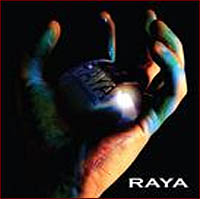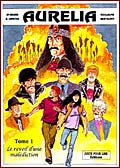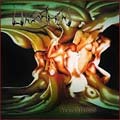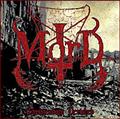RAYA (be) - Démo (2010)

Label : Auto-Production
Sortie du Scud : 2010
Pays : Belgique
Genre : Alternatif Moderne
Type : Démo
Playtime : 7 Titres - 29 Mins
Oui je sais bien, là aussi pour le coup je suis salement à la bourre (acte II). Une démo de 2010 chroniquée deux ans après, c’est pas le top question suivi attentif de l’actualité. Mais bon, j’ai aussi une vie, un frigo à surveiller et des lapins angoras à nourrir. Alors, shut up.
Et ça ne m’empêchera pas de vous dire que mes amis du jour sont Belges, qu’ils viennent de la région de Verviers, et qu’ils jouent une musique fort sympathique, qui m’a rappelé par moments les premiers efforts de SENSER, en moins Rap Core.
Belges OK, mais mous du genou, sûrement pas.
Car ceci a beau être une démo, ça ne doit pas occulter le fait que RAYA écume depuis 2002 les salles (Phoenix, Soundstation, Spirit of 66, Factory, la Legia), les festivals (Alive Festival, GemcoRock, Dard Dard Festival, Bar Rock SFX), et se considère avant tout comme un live band, comme tout combo Metal et assimilé qui se respecte.
Alors entre 2001 (année de formation du gang) et 2010, le quartette a largement eu le temps de roder son répertoire sur scène pour pouvoir proposer un premier témoignage discographique professionnel et carré.
Et c’est justement le cas.
Difficile en 2012 de faire la différence entre une carte de visite et un réel album tant obtenir un bon son est devenu chose aisée. Mais il est clair que les sept titres proposés par RAYA sont clairs, puissants, très bien mixés, et offrent donc un confort d’écoute maximal.
Et même si on trouve de tout durant cette petite demi-heure, la musique des Belges est loin d’être un foutoir. Des influences Electro, du phrasé Rap, de l’Alternatif moderne, des gros riffs Metal, un chant tantôt vindicatif, tantôt mesuré, du Ragga en français, enfin bref, c’est l’auberge espagnole version bien rangée et ordonnée.
Et le mélange à de quoi séduire, car les quatre musiciens ont réussi a rendre tout ça homogène pour affirmer leur identité.
Emblématique de cette démarche, le troisième morceau, « Shelter », qui navigue au gré de couplets portés par la voix de Dom sur fond de courts riffs bien plombés, avant de proposer un refrain explosif que n’aurait pas renié la bande à Fred Durst. Notons aussi l’ouverture explosive de « I Can Breathe », avec son intro de guitare carillonnante, ses passages Ragga, et son refrain mélodique parfait.
Le « Hit » de la démo est selon mon humble avis « Selfmade Man », construite selon le modèle de toute compo Alternative qui se respecte, et conjuguant couplets étouffés et refrain qui explose dans toute la pièce, soutenu par des cœurs convaincants et revendicatifs.
Voilà donc sept morceaux réunis en démo qui sont ma foi assez révélateurs du potentiel de ce quartette aux horizons étendus, qui refuse toute catégorisation et qui enjambe les barrières pour mieux s’exprimer dans un langage unique, celui de la musique.
RAYA n’évite bien sur pas toutes les erreurs inhérentes à un premier témoignage numérique, et on peut parfois leur reprocher de rester un peu trop fidèles à leur démarche, et de ne pas proposer de titre qui se démarque vraiment.
Mais il y a suffisamment d’ingrédients dans leur musique pour la trouver variée, je ne me fais aucun souci quant à leur capacité d’innovation dans le futur.
En attendant de vous voir sur votre terrain de chasse messieurs, la scène !
Ajouté : Jeudi 09 Août 2012
Chroniqueur : Mortne2001
Score :    
Lien en relation: Raya Website
Hits: 7722
|














